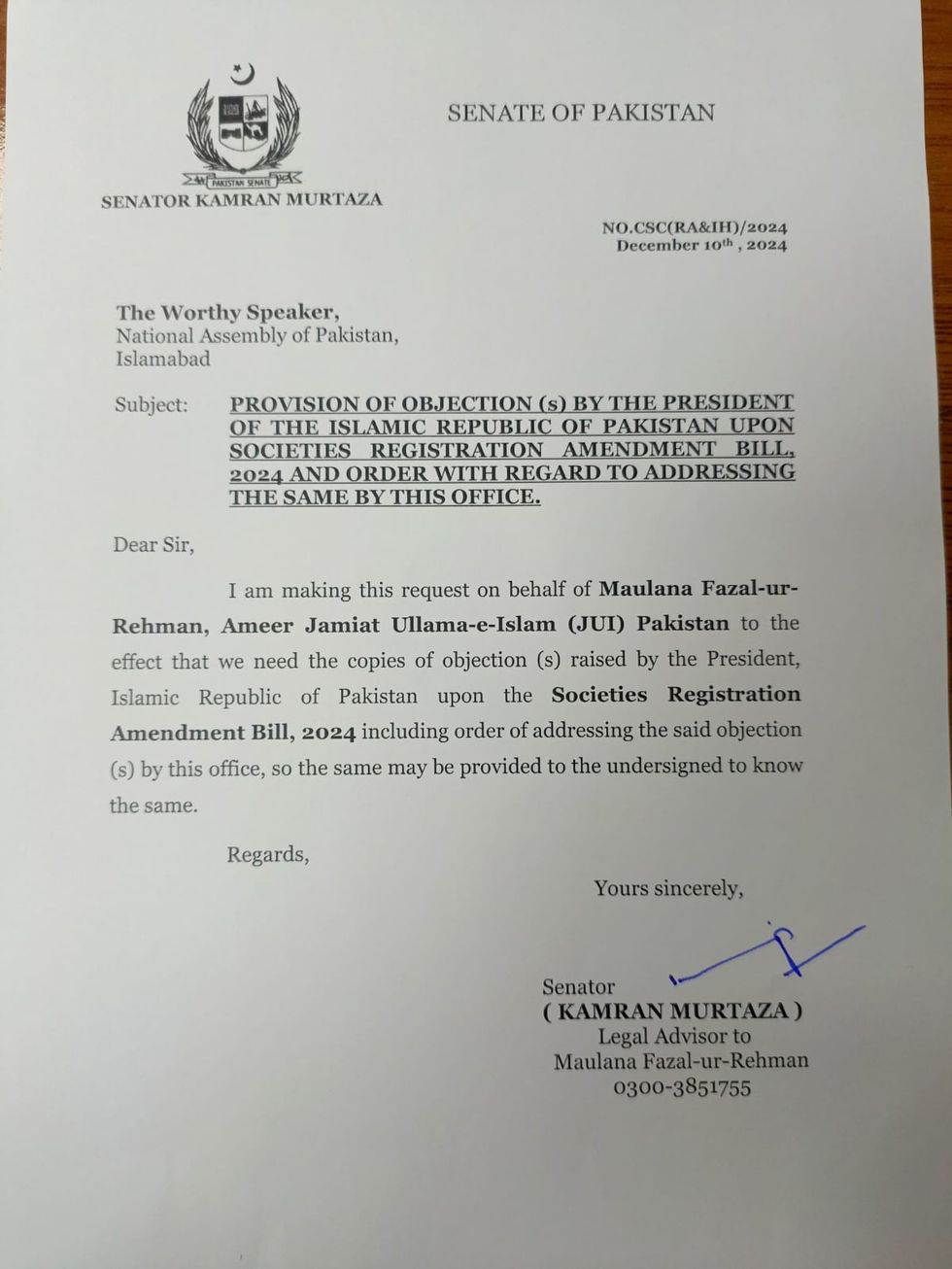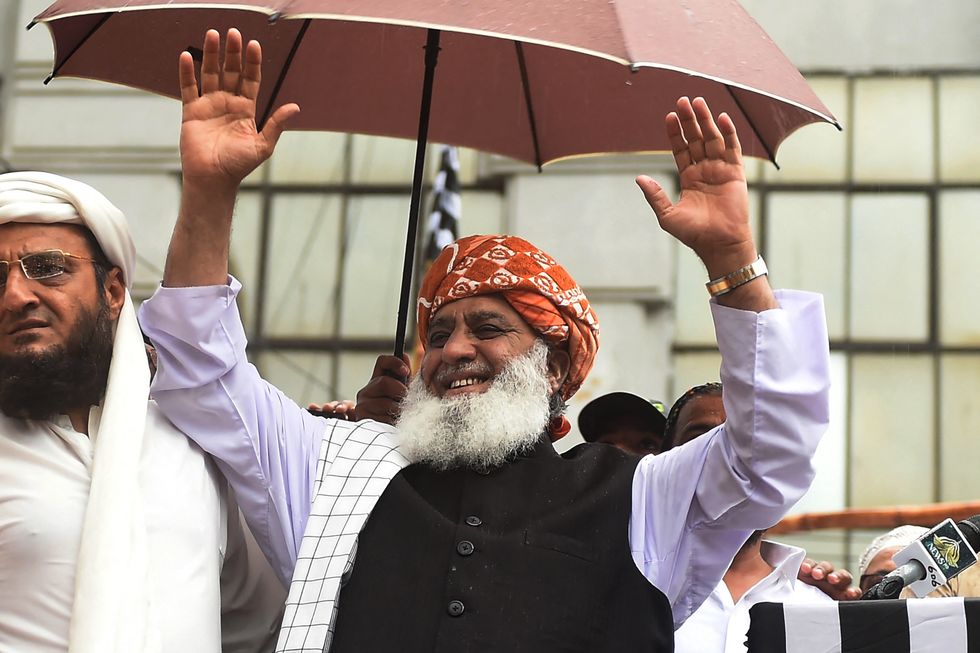Pakistan’s religio-political party seeks explanation on president’s objections to madrassa bill
JUI-F chief Fazlur Rehman set to address concerns in a press conference in Khyber-Pakhtunkhwa’s DI Khan today

Javed Hussain
Correspondent
I have almost 20 years of experience in print, radio, and TV media. I started my career with "Daily Jang" after which I got the opportunity to work in FM 103, Radio Pakistan, News One, Ab Tak News, Dawn News TV, Dunya News, 92 News and regional channels Rohi TV, Apna Channel and Sach TV where I worked and gained experience in different areas of all three mediums. My journey from reporting to news anchor in these organisations was excellent. Now, I am working as a correspondent with Nukta in Islamabad, where I get the opportunity of in-depth journalism and storytelling while I am now covering parliamentary affairs, politics, and technology.

Pakistan’s religio-political party — the Jamiat Ulema Islam-Fazl (JUI-F) — formally sought a certified copy on Thursday of the objections raised by President Asif Ali Zardari on the Societies Registration (Amendment) Bill, 2024.
Tensions are escalating between the Pakistani government and the opposition party JUI-F over a proposed bill on the registration of religious seminaries.
The passage of the bill was widely reported to have been one of the conditions on which the JUI-F supported the coalition government and helped it secure the two-thirds majority required in parliament to pass the 26th Constitutional Amendment in October.
Although the bill has been approved by parliament, it now requires the president’s approval to become law but President Asif Ali Zardari returned the bill to the Prime Minister’s Office earlier this month, citing legal objections.
The party has threatened to march on Islamabad if the bill is not signed without delay.

The Speaker of the National Assembly, Sardar Ayaz Sadiq, has provided the requested documents to the JUI-F, confirming eight points of contention, including concerns flagged by international organizations.
A letter penned by Senator Kamran Murtaza, on behalf of JUI-F chief Maulana Fazlur Rehman, urged Sadiq to disclose the specific objections and clarify actions taken to resolve them.
"We have a right to understand the basis of these objections, particularly when the bill was already passed through the proper channels," Senator Murtaza wrote.
Sources close to the JUI-F leadership told Nukta that the objections were shared after consultation with legal experts and Law Minister Azam Nazir Tarar.
"Maulana Fazlur Rehman believes the president's second set of objections is a violation of constitutional norms. Once the president raises objections, his role is complete,” they added.
According to legal experts consulted by the party, the president is only allowed to raise objections once during the legislative process. "After this stage, the bill becomes law," the source added.
The objections reportedly range from administrative concerns to broader issues highlighted by international organizations. Critics within the JUI-F argue that these concerns are being used to delay the implementation of the law.

Fazlur Rehman is set to hold a press conference in Dera Ismail Khan later today to outline his party’s stance and respond to the president’s objections.
"This is not just about the JUI-F; it’s about the sanctity of our legislative process," a party insider said.
Bill’s key provisions
The Societies Registration (Amendment) Act, 2024 seeks to streamline the registration process for madrassas and ensure compliance with national laws. Key provisions include:
- Mandatory registration: All madrassas must register within six months, while newly established madrassas have one year to comply.
- Audits: Madrassas are required to conduct regular financial audits and submit reports to relevant authorities.
- Curriculum oversight: Prohibits teaching materials promoting militancy, sectarianism, or religious hatred but allows comparative religious studies and general education.
- Simplification: Madrassas with multiple branches only need to register once.
The act recognizes madrassas’ role in Pakistani society, highlighting their importance in preserving Islamic teachings.
President’s concerns
According to sources, President Zardari’s hesitation stems from concerns over potential sectarianism, international backlash, and unregulated foreign funding. The Financial Action Task Force (FATF), International Monetary Fund (IMF), and European Union are reportedly pressuring Pakistan to ensure tighter controls.
The president also questioned whether the proposed reforms conflict with existing laws and educational disciplines like fine arts. Critics argue that these objections were thoroughly debated during the legislative process.







Comments
See what people are discussing